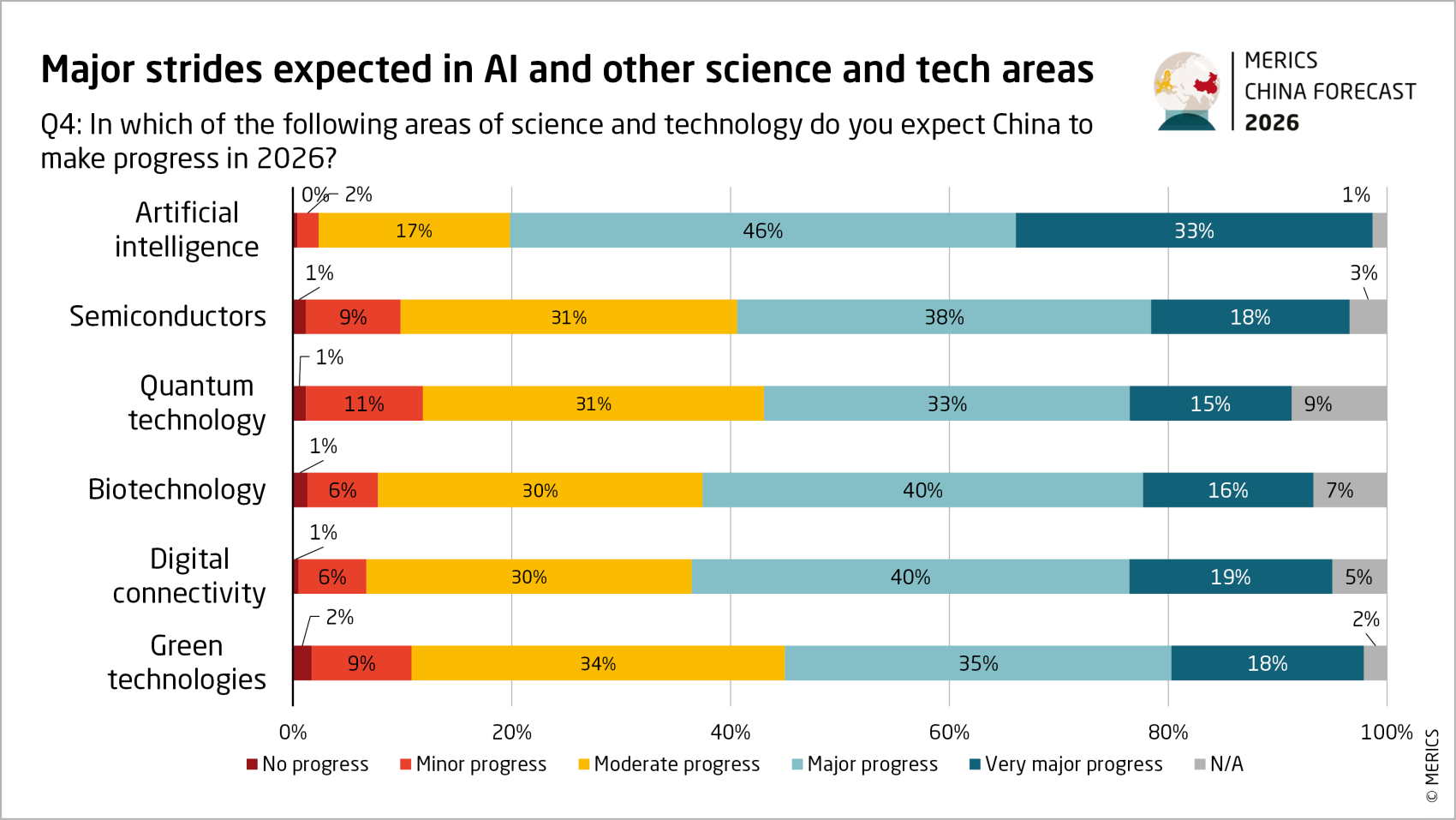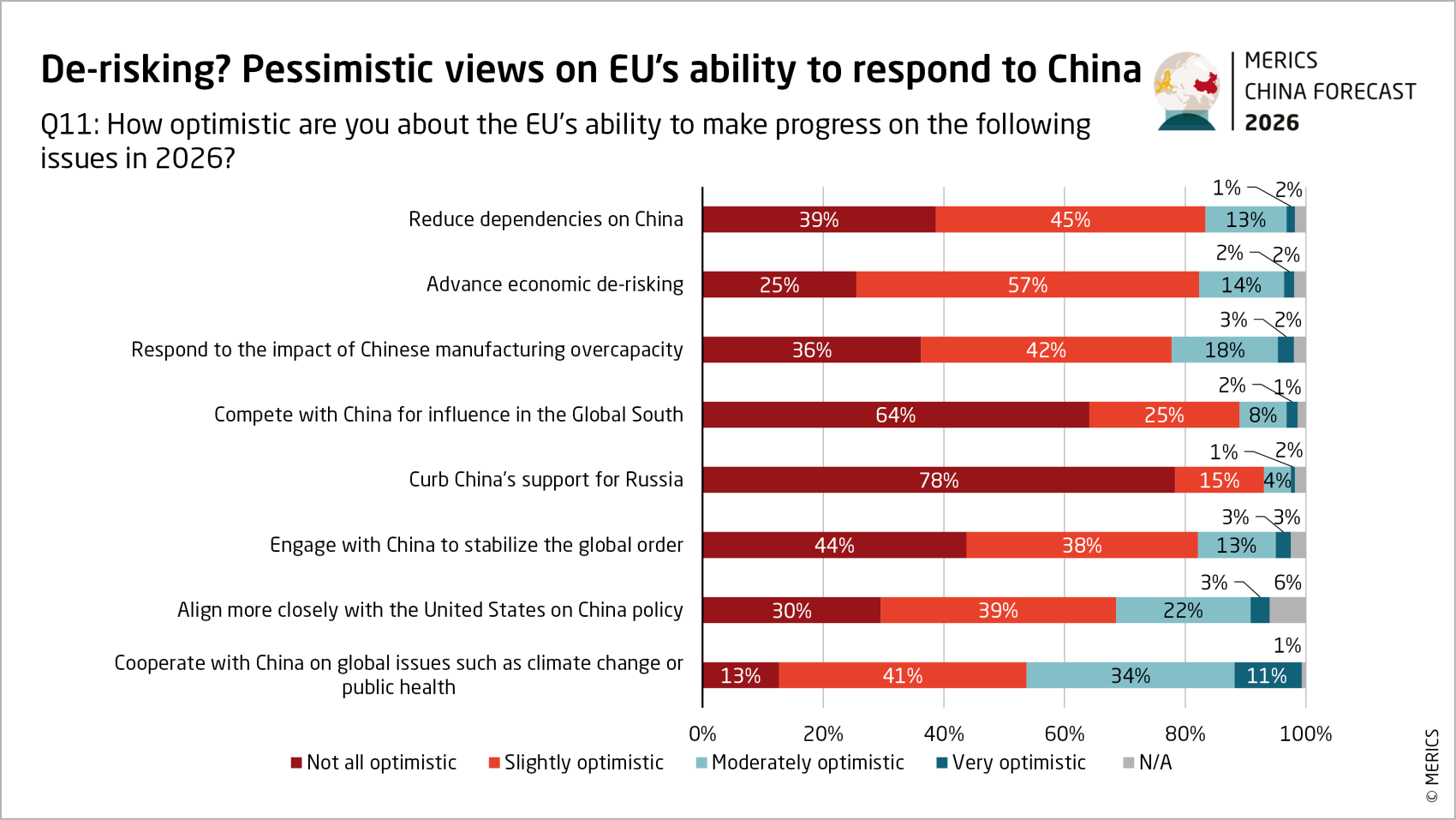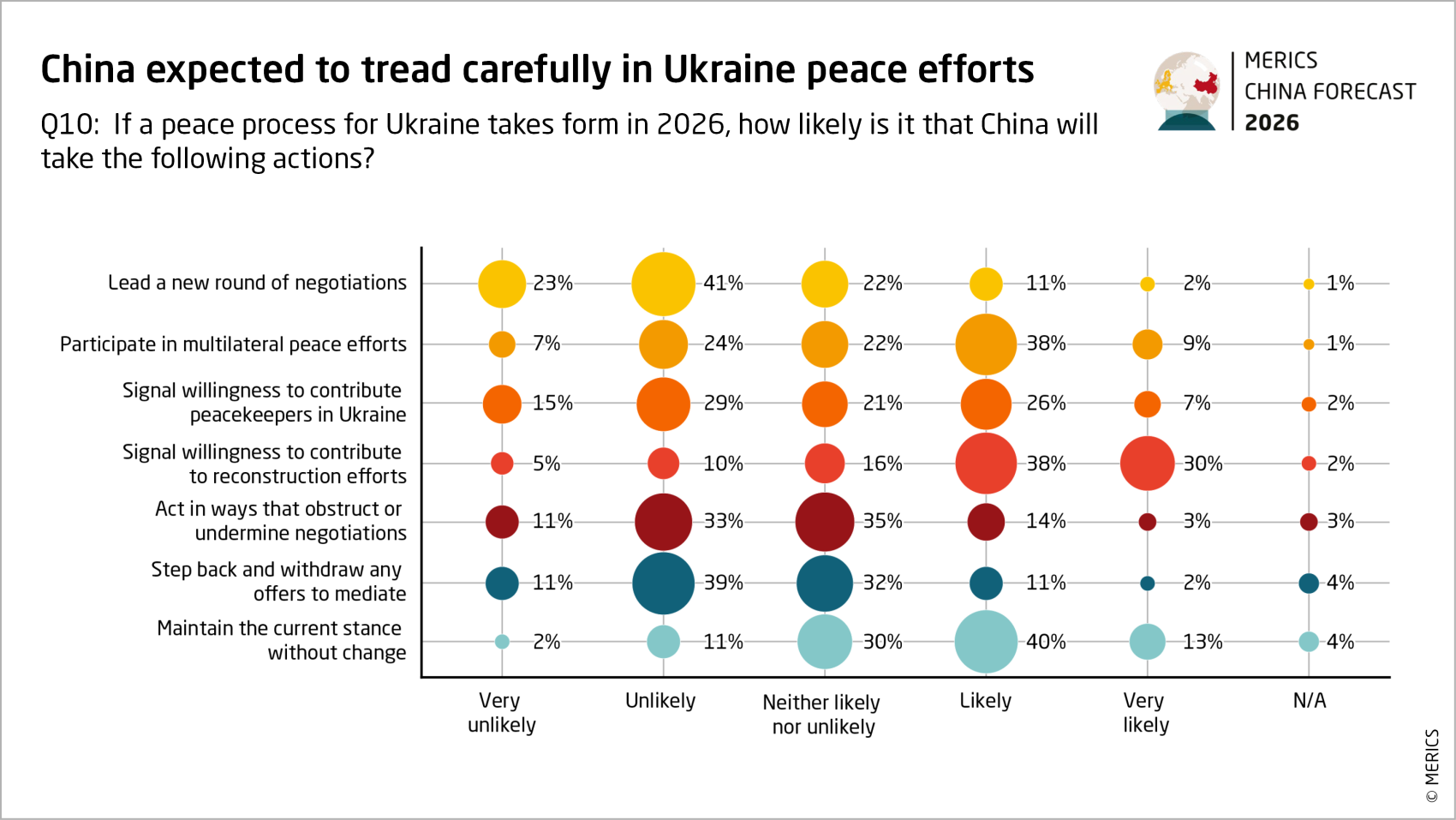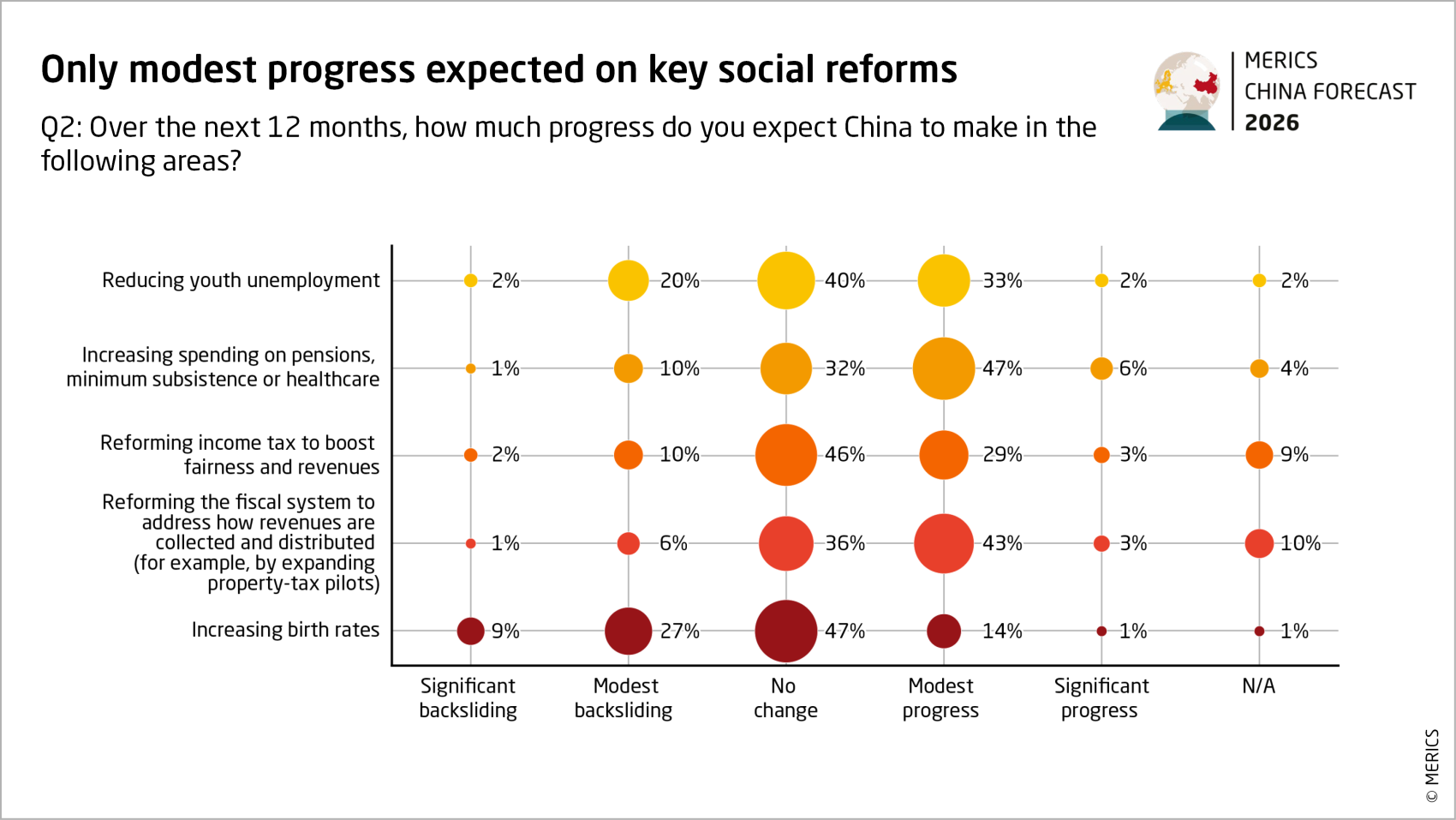

MERICS China Forecast 2026: High expectations for Chinese innovation, low expectations for relations with US and EU
China is in 2026 expected to make progress in key fields of science and technology – especially artificial intelligence (AI) – while its relations with the United States continue to deteriorate and its leverage over Europe gains in strength, according to the annual MERICS China Forecast, based on an online survey of our global network conducted from October to November 2025.
Nearly 80 percent of the 766 China experts and observers we surveyed said the world’s second-largest economy would make “major” or “very major” progress in AI, and more than half expressed the same views for semiconductors, biotechnology and green technologies. Such confidence stands in contrast to US restrictions on China’s access to high-tech chips and chip-making equipment.
US-China relations seen worsening, while Europe fails to de-risk or compete economically
China’s successes on its path to technological self-reliance were expected to coincide with a further deterioration in China-US ties. Three-quarters of respondents saw relations between the two countries deteriorating in the tech domain, while 68 percent expected the same in the military realm and 62 percent in trade. Crucially, these declines could in turn strain transatlantic relations: Respondents were skeptical that Europe and the US would be able to align their China policies, with around 70 percent saying they were “not at all” or only “slightly” optimistic this would happen.
The outlook for EU de-risking and competing with China was clouded by pessimism. On the economic front, 84 percent of respondents said they were “not at all” or only “slightly” optimistic about Europe’s ability to reduce dependencies – and a similar proportion said the same about advancing de-risking and responding to China’s manufacturing overcapacities. One notable exception was climate policy and public health: Around 75 percent of respondents were at least “slightly” or “moderately” optimistic about the prospect of Europe cooperating with China in this area.
Beijing expected to deepen engagement in Global South and stay aligned with Moscow
Pessimism was also widespread regarding the EU’s ability to match or change China’s foreign policy. 64 percent of respondents said they were “not at all” expecting Europe to successfully compete for influence in the Global South and 78 percent expressed the same view about curbing China’s support for Russia. These views aligned with those about foreign-policy: 83 percent of respondents said that continuing to assert global influence was “very” or “extremely” important for Beijing, while 86percent expressed the same views of its drive to deepen partnerships in the Global South.
This came hand in hand with expectations of progress in diversifying Chinese export markets: Nearly 80 percent of respondents expected China to make “modest” to “significant” advances in this area. At the same time, only about a quarter of respondents saw strengthening relations with European countries as “very” or “extremely” important to Beijing. Interestingly, despite its goal of actively asserting its influence, China’s relations with Taiwan were expected to remain stable, scoring 57.8 points between 0 for significant de-escalation and 100 for significant escalation.
Assessing Russia’s war against Ukraine, half of respondents said Beijing’s support for Moscow would continue unchanged, while one third expected China to increase its dual-use exports. Views on China’ role in any peace process were mixed: 31 percent believed it was “unlikely” or “very unlikely” to participate in efforts to end the war, while 47 percent said this was “likely” or “very likely”; around two-thirds of respondents said it was “unlikely” or “very unlikely” to take the lead in any new negotiations, while a similar proportion expected it to contribute to post-war reconstruction.
China’s socio-economic problems are seen as remaining stable or even improving slightly
Regarding China’s socio-economic issues, large majorities of respondents expected “no change” or at best only “modest progress” in tackling problems like youth unemployment and limited welfare provision – and one third even anticipated the already low birth rate continuing to decline. But no major socio-economic disruptions were expected, suggesting that China’s society will remain stable and its economy again grow moderately. A little over half of all respondents said global perceptions of China would “improve” or “improve significantly” in 2026.
The survey was conducted over four weeks, from October to November 2025. Of the 766 respondents, 699 provided information about their nationality. About 80 percent identified as European, including 44 percent from Germany. Nearly 7 percent identified as American, and 4 percent as Chinese. About one quarter of respondents worked in academia, 21 percent in the private sector, 12 percent at think tanks, and 16 percent for governments, diplomatic service, and EU institutions.
The results of the MERICS China Forecast 2026 have been presented at a conference on November 26. To get all the results of the survey, download the PDF:








